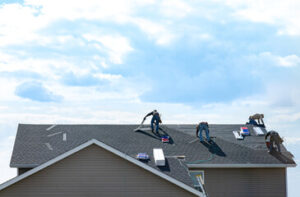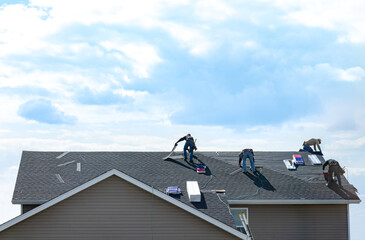The best way to choose Bears Valley Roofing Company is to look for one with a good reputation. You should also check that they are licensed and insured. They should be able to provide you with a written estimate and contract.
Also, make sure that the contractor has experience with your specific roof type. They should also be able to provide you with product warranties.
The reputation of a roofing company is an important factor to consider. Having a good reputation will ensure that you receive quality work from an experienced crew. It will also help you avoid unreliable companies. In the roofing industry, it is very competitive and building a solid client base requires time and commitment. Roofing is not an easy job and it requires a lot of strength, stamina, and skill. It also involves working in all types of weather conditions.
Experience
An experienced residential roofing contractor is able to handle a variety of roof repairs and replacements. Whether your roof needs minor or major work, this professional will be able to provide high-level customer service and offer solutions that are best suited to your unique roof. They also understand the various products that are available, including insulation options, ventilation systems, window installation, gutter replacement, and cleaning services. This knowledge can help homeowners make educated decisions regarding their roofing upgrades and ensure they receive top-quality workmanship.
During the hiring process, homeowners should look for detailed quotes and an open line of communication. A quality roofing company will be willing to answer any questions, and they will be transparent about any additional costs that may arise during the project.
In addition, a good roofing company will be familiar with local building codes and regulations. This can prevent potential legal issues and delays and ensure that the roofing project is completed in compliance with all laws.
Additionally, a reliable roofing company will be able to provide warranties for their work and the materials used. This can provide peace of mind for homeowners and can help them to save money on future maintenance and repairs.
Finally, a good roofing company will have a solid safety plan in place to protect their workers and clients. This includes a training program, equipment, and procedures for handling hazardous materials. This is an essential component of any roofing job, and it is vital to choose a contractor with a strong safety culture.
Before choosing a roofing company, homeowners should interview multiple contractors and visit past projects. This will allow them to assess each company’s expertise and professionalism. They should also verify the roofing contractor’s credentials, such as a business license and insurance details. In addition, ask if the contractor has manufacturer certifications and can provide warranty coverage for their work.
Insurance
Roofing is a tough job, and it takes a lot of strength and stamina. It involves carrying heavy materials and climbing ladders, all while working in harsh weather conditions. All of these factors can lead to aches and pains, and in severe cases, they can even cause work-related injuries. This is why a reputable roofing company always carries insurance policies that protect their employees and clients from damages. The cost of a roofing insurance policy can vary, depending on several factors. These include the nature of the business, number of employees, and location. It also depends on the amount of coverage and the claims history. For instance, roofers in urban areas or states with high litigation rates will pay higher premiums.
General liability insurance is an essential insurance for roofing companies, and it offers protection against many types of liability. This includes third-party bodily injury, property damage, and personal/advertising injury. For example, imagine a gust of wind blows over your ladder and injures a passerby. Your general liability insurance will cover the medical costs of the injured person. In addition, it will cover legal fees if you are sued.
Another type of insurance for roofing companies is workers’ compensation insurance, which will pay for lost wages and medical expenses if an employee is injured at work. Roofing is one of the most dangerous occupations, and it can be difficult to prevent accidents from happening. However, a worker’s comp policy will provide benefits to the injured party, regardless of who caused the accident.
It’s also important for a roofing contractor to have commercial auto insurance, which will protect their work vehicles against accidents that occur during business hours. Additionally, a good roofing company will have fleet insurance, which covers all of their company vehicles. Finally, a roofing contractor should have commercial property insurance to protect their tools, equipment, and materials against theft, fire, and weather damage.
Roofing companies should also have subcontractor default insurance, which protects them from the financial impact of failing to hire subcontractors. This is especially important in large construction projects, where the performance of subcontractors can significantly affect project timelines and budgets.
Warranty
When selecting a roofing company, it’s important to review their warranty policies thoroughly. Many manufacturers offer warranties that cover the materials for a set period of time, while others offer extended warranties that protect homeowners against future repair costs. However, there are certain limitations and exclusions that homeowners should be aware of when reviewing these warranties.
The first type of warranty is a manufacturer’s warranty, which covers product defects such as shingle issues for a specified number of years. Most reputable manufacturers provide this type of warranty for their products. However, homeowners should keep in mind that most of these warranties are prorated, meaning that the amount of coverage decreases over time.
Another common type of warranty is a workmanship warranty, which provides protection against installation errors. Most roofing companies offer this type of warranty for a limited period of time. However, homeowners should be aware that this type of warranty can be voided if the roofing contractor fails to follow the manufacturer’s guidelines.
Most roofing manufacturers also require that their products be installed by a licensed and certified roofing contractor. Failure to meet these requirements can result in a voiding of the warranty, and the homeowner will be responsible for any subsequent repairs.
Enhanced warranties are a great investment for homeowners. These warranties provide additional protection beyond standard material and workmanship guarantees, providing peace of mind for decades to come. They also enhance home value and are transferable to future homeowners, making them a worthwhile consideration for any roofing project.
While some homeowners might question the worth of these warranties, they are an excellent way to protect yourself against unforeseen expenses and problems that might arise. Moreover, these warranties provide a level of security that other types of insurance cannot, and they can help to offset the cost of the roofing project. Moreover, homeowners should always check whether the warranty is non-prorated, as this will save them from paying for any unnecessary expenses over time. Non-prorated warranties are the best choice, as they will provide homeowners with a lifetime of protection.
